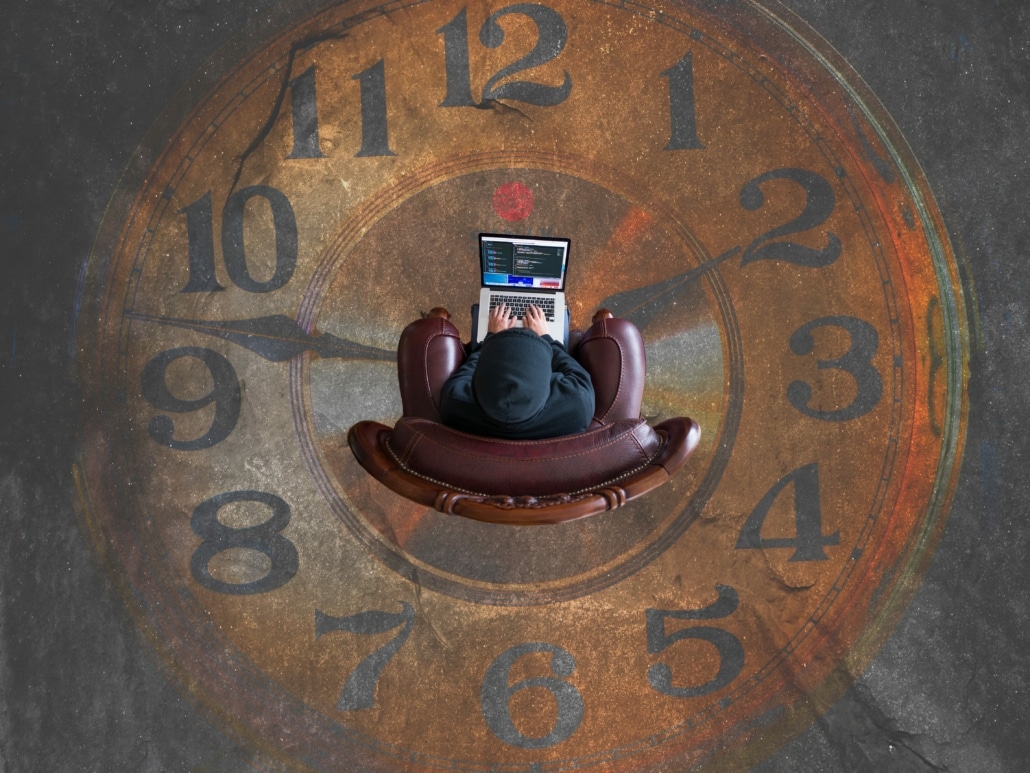The Case for a Time-Affluent Workplace Culture

Not long ago, NPR spoke with the descendants of the eminent economist John Maynard Keynes. In 1930, Keynes speculated about the future in an essay titled, “Economic Possibilities for Our Grandchildren,” famously suggesting that, by 2030, Americans would enjoy a 15-hour workweek. It is perhaps one of the most depressingly wrongheaded predictions, concerning societal progress, anyone can think of. As if to render more vivid the fact of Keynes’ lack of foresight, NPR was curious to hear how much the great economist’s grandchildren work. Since Keynes never became a father, NPR got hold of the next best thing—his sister Margaret’s grandchildren, Nicholas Humphrey and Susannah Burn. No surprise, they work just as much as the rest of us (or “worked,” in Humphrey’s case, as he’s now retired).1 Keynes himself, they noted, worked himself to death, suffering a fatal heart attack in his 60s amid his effort to shape the post-World War 2 economic order. “He wasn’t sleeping,” Humphrey said. “He was overdoing it all the time.”
To some degree, most of us today are like Keynes, working ourselves silly, or sad. Time for leisure is, as a result, scarce. And often the time we have left to enjoy feels less satisfying than it might be, because it’s interrupted by emails and other “notifications” from our phones. These momentary distractions fragment time into less pleasing segments, leaving us feeling what the Harvard social psychologist Ashley Whillans calls “time poor.”
Time, to a counter-intuitive extent, is what you make of it.
In a recent Nature Human Behavior paper, Whillans and her colleagues explain why time poverty matters for individuals, organizations, and nations.2 “Today, time poverty and ‘busyness’ are often seen as signals of productivity, success, and high status,” the researchers wrote. “Yet, recent scientific evidence provides compelling evidence that feeling time-poor can adversely affect subjective well-being (for example, life satisfaction, positive affect), mental health, work performance, creativity, and relationship quality.”
Take, for example, a 2009 study in the Journal of Business Ethics. The researchers, Tim Kasser and Kennon Sheldon, took their cue from studies increasingly showing that money isn’t a durable source of happiness and investigated whether having more time could make people happier. “Across four studies,” the researchers found, “results consistently showed that, even after controlling for material affluence, the experience of time affluence was positively related to subjective well-being.” On that basis, Kasser and Sheldon “propose that businesses consider the possibility of ‘time affluence’ as an alternative model for improving employee well-being and ethical business practice.” That could mean, the researchers say, expanding paid family leave, guaranteeing paid vacation, or giving employees the right to refuse overtime work over 48 hours per week—policies which could be implemented at the business or national level.
“If the nation in which it operates does not have laws that sufficiently enhance employee time affluence, a business may strive to be more ethical by changing its own culture. To this end, managers, owners, boards of directors, and shareholders might change company policies regarding family leave, vacations, and overtime,” Kasser and Sheldon write. “While this would be an important step, history shows that many barriers to time affluence have arisen because powerful businesses have lobbied against laws that they perceive as interfering with their ability (or even ‘right’) to make a profit. Thus, it also seems that an ethical business would not only strive to change its own internal culture, but would also lobby for national laws that provide paid family leave and minimum paid vacations, as well as place reasonable caps on mandatory overtime hours.”
Businesses can also increase their employees’ time affluence by being more time conscious in the workplace. A 2018 study on more than 1,000 employees, across 29 occupations, found that more than 78 percent of lawyers, managers, and other kinds of workers were kept idle between meetings, assignments, and other responsibilities.3 “These idle hours,” Whillans and her colleagues note, “resulted in the equivalent of over $100 billion a year in lost wages.” The researchers go on to say:
Furthermore, when employees anticipated experiencing idle time, they also slowed down their work pace. This is because people dread idleness and boredom. Relatedly, organizations are increasingly wasting employees’ time with menial administrative tasks that are not central or necessary to primary roles at work…According to a detailed set of qualitative interviews, even CEOs of well-established organizations who have control over their schedules spent only 43 percent of time engaged in activities “directly related to furthering their mission.” When engaged in secondary tasks, employees are reminded of all the central tasks they could be doing, increasing their feelings of goal conflict, and in turn, their feelings of time poverty.
Whillans told me that, for businesses, it makes sense to think of increasing time affluence as an ethical imperative. “It could even have implications for the extent to which people deliberately think before they make decisions,” she said. “Time affluence could influence ethical decision making on an organizational level, in terms of correct reporting and abiding by technical formal processes. There’s a lot of interesting applications beyond employee well-being.”
Subscribe to the Ethical Systems newsletter
Whillans is currently working on a project with a major consulting firm on these issues. “You have to help them recognize it for themselves,” she said. “It’s not something you can come in and say, ‘You’re doing all of these things wrong.’ You have to help employees within the organization discover their pain points for themselves, and then work together to help overcome them.”
Consultants, she says, always talk to her about “hours versus standard.” They often feel like they can’t turn in assignments quickly because their bosses use work hours as a proxy for effort. “And so they say, ‘I was done two hours ago and I literally sat here and did nothing so that I could turn it in two hours later, and that’s such a waste of my time,’” she said. “Surfacing these conversations in organizations has been really useful as a first step. And now we’re trying to launch interventions in different workplaces to help overcome some of these bad time-use practices that happen in all of our places of employment.”
You don’t have to wait on your workplace to make changes to help yourself feel more time affluent. According to a 2012 study, one surprising way to feel like you have more time is to offer your time to other people.4 “We compared spending time on other people with wasting time, spending time on oneself, and even gaining a windfall of ‘free’ time, and we found that spending time on others increases one’s feeling of time affluence,” the researchers wrote. “The impact of giving time on feelings of time affluence is driven by a boosted sense of self-efficacy.” Time, to a counter-intuitive extent, is what you make of it.
Keynes, then, in his “Economic Possibilities for Our Grandchildren,” was right when he wrote that, in a century, “We shall honor those who can teach us how to pluck the hour and the day virtuously and well, the delightful people who are capable of taking direct enjoyment in things, the lilies of the field who toil not, neither do they spin.” Just not in the way he imagined.
Brian Gallagher is the Communications Director at Ethical Systems. Follow him on Twitter @bsgallagher.
References
- Keynes Predicted We Would Be Working 15-Hour Weeks. Why Was He So Wrong?
- Why time poverty matters for individuals, organisations and nations
- The downside of downtime: The prevalence and work pacing consequences of idle time at work
- Giving Time Gives You Time
Lead image: Kevin Ku / Unsplash



